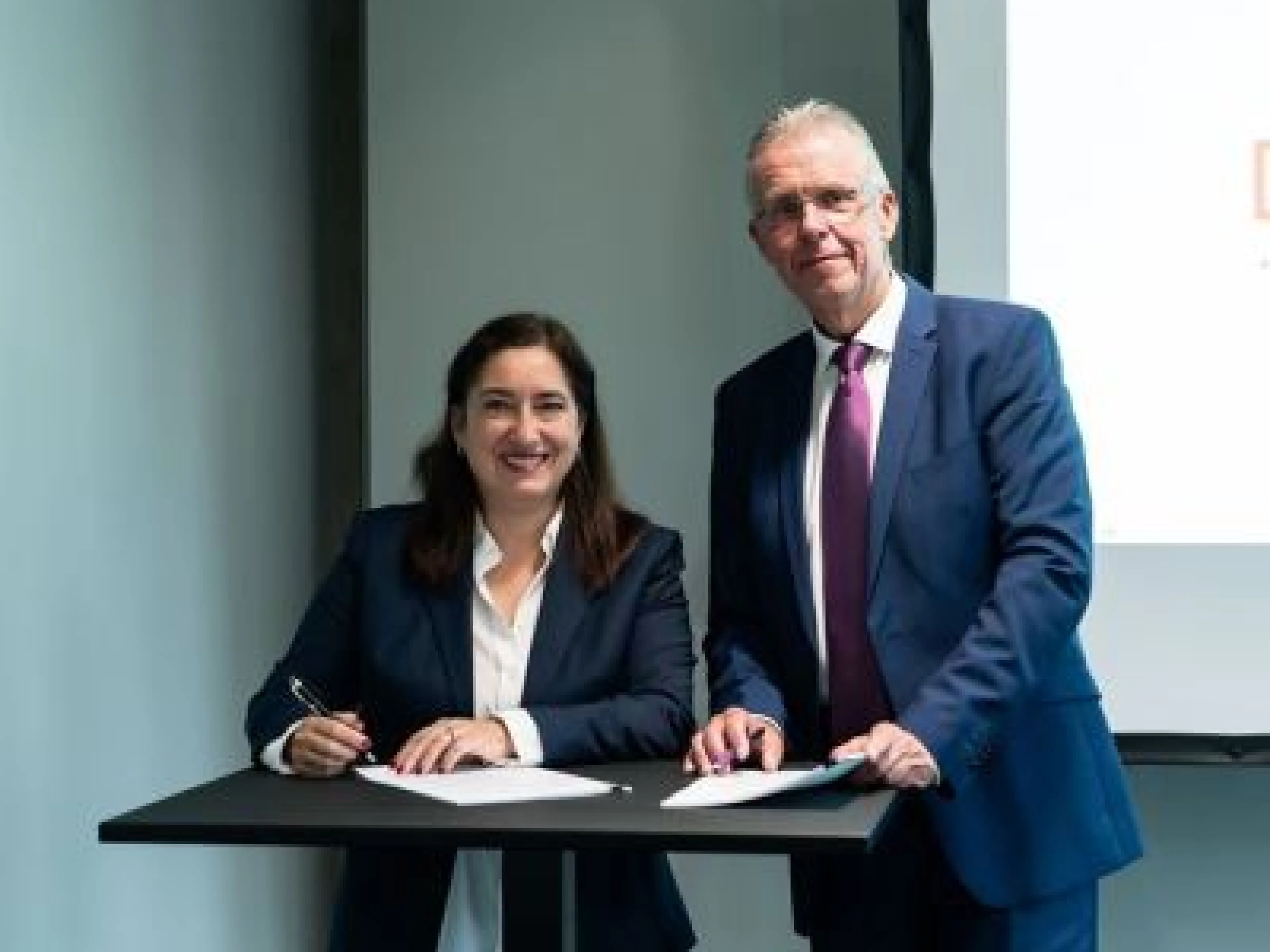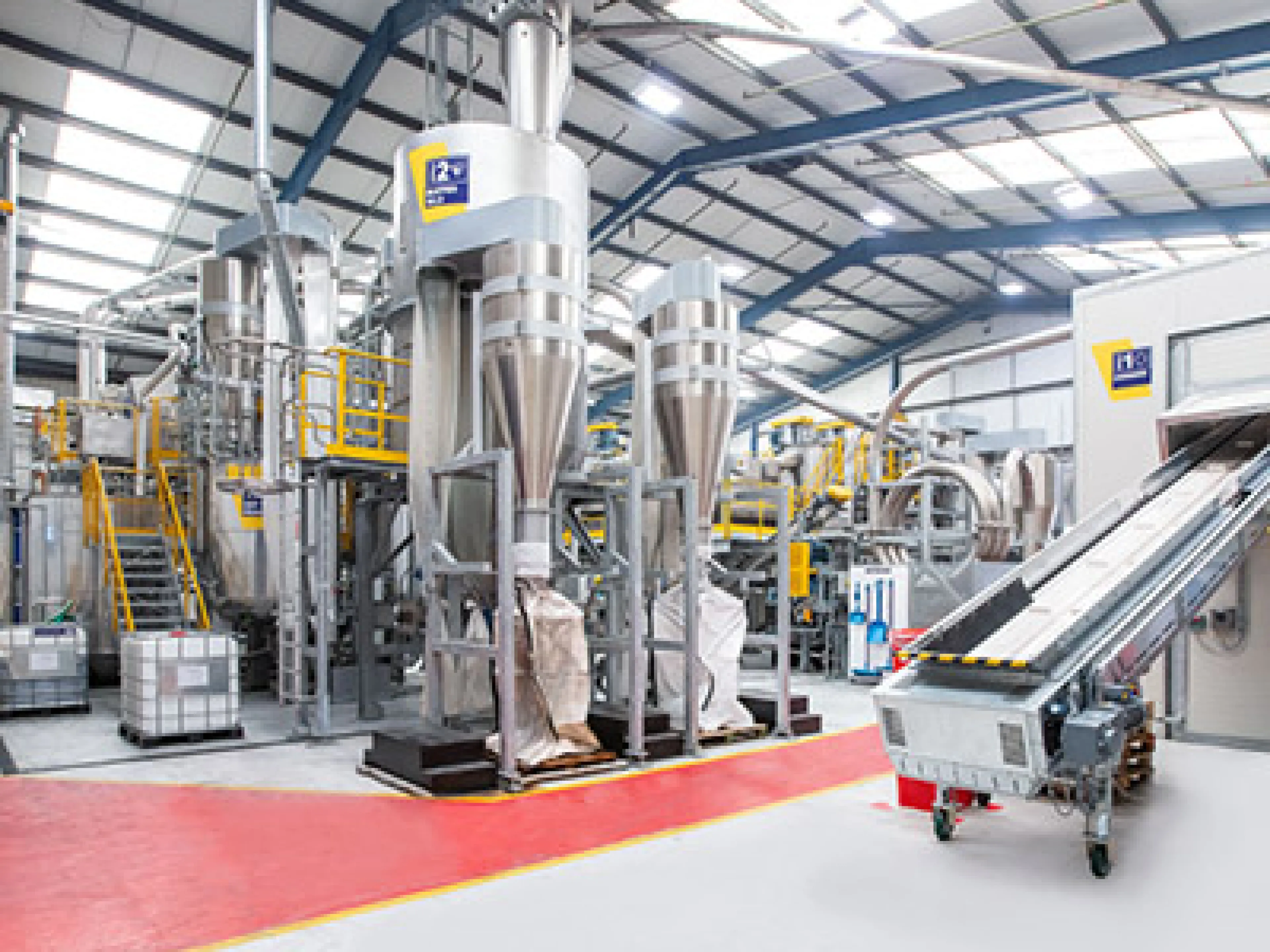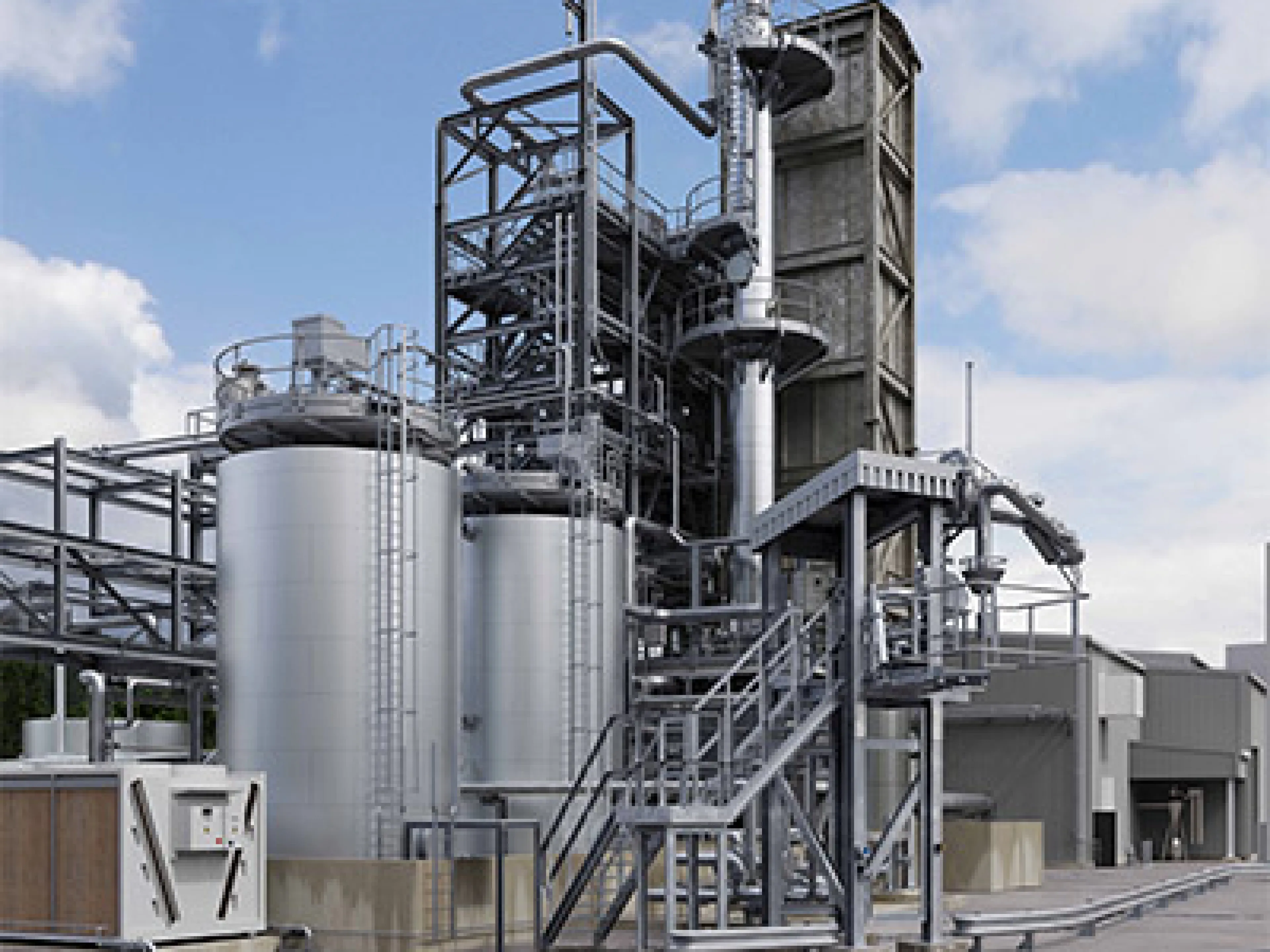
In the mechanical recycling of plastics, not all material streams can be captured. For example, multilayer films from food packaging cannot be separated and reused in this way. In 2019, the collection of lightweight packaging from the Dual System recycled only 0.5 million tons out of a total volume of 1.2 tons. It is also necessary to return the remaining volume of 700,000 tons to the cycle. Chemical recycling offers a solution. Together with cooperation partners, Südpack has created the prerequisites for a functioning recycling economy. The Recenso subsidiary Carboliq operates a fully continuous plant for chemical recycling of plastics - on an industrial scale - in Ennigerloh, Münsterland.
Hardly any other topic is as controversially discussed in connection with the introduction of a circular economy in the packaging industry as the technology of chemical recycling. As a supplement to mechanical recycling, this process can make a significant contribution to opening up additional waste streams, for example for flexible multilayer films that could not previously be recycled, and to meeting the statutory recycling quotas. In terms of its application as a waste treatment process, Carboliq technology can be classified as a material recycling process, explained Christian Haupts, managing director of Carboliq, at a joint information event with Südpack. It is an advanced thermo-chemical process, also known as direct oiling. What the recycling process has in common with known gasification or pyrolysis processes is that solid organic feedstocks such as plastics and biomass are converted into oils and gases by splitting, or cracking, the hydrocarbon chains. However, the process differs significantly in its flexibility with regard to the materials used, which do not have to be of polyolefin origin. Thanks to this high feedstock tolerance, Carboliq is suitable for contaminated, mixed or other plastics and also for flexible packaging and highly complex multilayer films made from different types of plastics. Compared to mechanical recycling, the process thus offers significantly more possibilities, as it aims to recover the valuable material components through thermal decomposition.
Recycling process with lower energy input
Another advantage is that the process takes place at a lower temperature of below 400 degrees Celsius. This eliminates coking. No toxic pyrolysis gases are formed. The low temperature, the single-stage nature of the process and the introduction of energy directly into the material via friction enable the material to be converted with relatively low energy input. If the electricity required for plant operation is also obtained from renewable sources in the future, the Carboliq process will be completely climate-neutral. Neither the process nor the energy used emit CO2.
The plant concept is designed for an annual output of liquid resources of 10,000 metric tons each, based on high-calorific feed fractions and in fully continuous operation of 7,200 hours per year. The secondary raw material obtained is similar in many essential properties to crude oil and the products derived from it. It is thus a fully-fledged substitute for fossil resources. The raw material can be processed in existing refinery plants in the petrochemical industry, is miscible with fossil oils and can be stored just like them.
Significantly improved CO2 balance
Dirk Hardow, Head of "Functional Films & Compounds" at Südpack, shed light on the general conditions for implementing chemical recycling. Using a model calculation, he outlined the positive impact of recycling on the CO2 balance of plastics. According to this, plastics that are mechanically recycled and processed into granules have a 98 percent lower CO2 footprint than granules made from virgin material. If the production of pellets from Virgin Material is compared with material from chemical recycling, the CO2 savings are over 20 percent. However, these two considerations did not take into account the fact that the material obtained from chemical recycling would otherwise be sent for thermal recycling, thereby releasing additional CO2. Another advantage is that the longer the material is kept in the cycle, i.e. the more often it is recycled, the further the CO2 footprint falls.
Appropriate recycling technology for compounds
Johannes Remmele, owner of the Südpack Group, provided information on the "Zero Waste" vision, the reasons for the cooperation with Carboliq and the family-owned company's commitment to implementing the process as a complementary recycling technology. His credo: Despite all sustainability efforts, there will continue to be materials whose structure consists of different polymers. After all, these structures will continue to be indispensable for many applications and are also the most material-efficient way of producing the desired functionalities of a package. Since these properties cannot be achieved in a material-efficient way by monostructures according to the current state of the art, a suitable recycling technology is needed for these materials so that these fractions can also be recycled and do not have to be sent for thermal recycling.
The conversion of previously non-recyclable plastic fractions as well as post-consumer and post-industrial waste into a valuable resource is already a reality. Südpack is the only manufacturer of flexible films that has direct access to capacities for chemical recycling. Combined with the site in Schwendi, which has capacity for mechanical processing of recyclables, the packaging company is always able to use the technology that is better in terms of environmental impact and cost-effectiveness when closing recyclable material loops.









